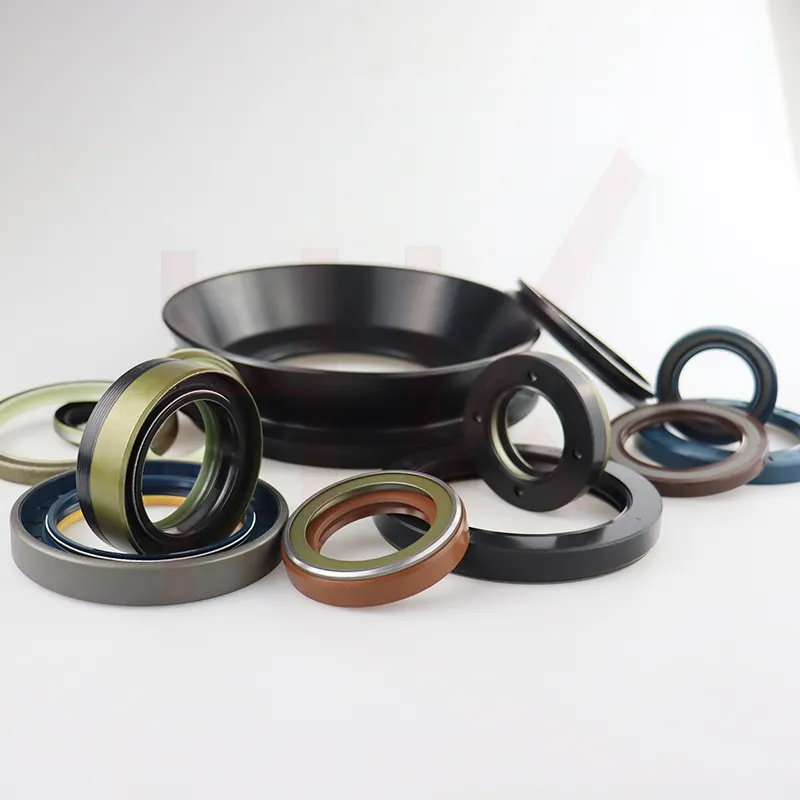Nov . 06, 2024 12:41 Back to list
Understanding the Importance of Swivel Hub Seals in Mechanical Applications
Understanding the Swivel Hub Seal Key to Enhanced Performance in Machinery
In the realm of mechanical engineering and machinery, ensuring the optimum functioning of components is paramount. One of the critical components that often goes overlooked is the swivel hub seal. This seemingly simple part plays a vital role in maintaining the efficiency and longevity of various mechanical systems. In this article, we will explore the functions, types, and applications of swivel hub seals, highlighting their importance in industrial settings.
What is a Swivel Hub Seal?
A swivel hub seal is a type of sealing device designed to prevent the leakage of fluids and contaminants in rotating machinery. Typically found in applications where a rotating shaft is immersed in lubricants or other fluids, swivel hub seals ensure that the internal environment remains free from external contaminants. They are commonly used in machinery such as wheel hubs, heavy equipment, and various types of rotating machinery.
Functions of Swivel Hub Seals
The primary functions of swivel hub seals can be categorized into several crucial areas
1. Fluid Containment The primary function of a swivel hub seal is to keep lubricants or hydraulic fluids contained within the machinery. By preventing leaks, these seals maintain the necessary lubrication for moving parts, thereby reducing wear and increasing efficiency.
2. Contaminant Exclusion Swivel hub seals are designed to create a barrier against dust, dirt, and other contaminants that could enter the machinery. By keeping these harmful elements out, the seals help to prolong the lifespan of the components inside.
3. Pressure Maintenance In applications where there are significant pressure differences, swivel hub seals help to maintain the necessary internal pressures. This is especially important in hydraulic systems, where pressure integrity is crucial for optimal performance.
Types of Swivel Hub Seals
Swivel hub seals come in various designs and materials, tailored to specific applications and environments. Some common types include
swivel hub seal

1. Rubber Seals These are popular due to their flexibility and resilience. Rubber seals can withstand a range of temperatures and are compatible with various fluids, making them suitable for many industrial applications.
2. Metal Seals For high-temperature or high-pressure applications, metal seals provide excellent durability and strength. They can also resist chemical exposure better than rubber seals, making them ideal for harsher environments.
3. Composite Seals Combining materials, composite seals offer enhanced performance characteristics. They are designed to take advantage of the strengths of both rubber and metal, providing a balanced solution for demanding applications.
Applications of Swivel Hub Seals
Swivel hub seals are utilized in a broad range of industries, including
- Automotive In vehicles, swivel hub seals play an essential role in wheel bearings and differentials, ensuring that lubricants are contained and contaminants are excluded.
- Aerospace In aircraft systems, swivel hub seals contribute to hydraulic systems and control mechanisms where reliability and performance are critical.
- Construction Heavy machinery like excavators and bulldozers use swivel hub seals in various components to maintain performance under extreme conditions.
- Marine In ship propulsion systems, swivel hub seals help to prevent seawater from entering sensitive mechanical areas, preserving structural integrity and function.
Conclusion
The swivel hub seal may be a small component, but its significance in machinery cannot be understated. By ensuring fluid containment, preventing contamination, and maintaining pressure, these seals are crucial for the functionality and longevity of numerous industrial and mechanical systems. As technology advances, the design and materials used for swivel hub seals will continue to evolve, ensuring that they meet the ever-changing demands of modern engineering. Recognizing and understanding the role of swivel hub seals is essential for anyone involved in maintenance, design, or operation of machinery across various industries.
-
TCN Oil Seal Metal Ring Reinforcement for Heavy Machinery
NewsJul.25,2025
-
Rotary Lip Seal Spring-Loaded Design for High-Speed Applications
NewsJul.25,2025
-
Hydraulic Cylinder Seals Polyurethane Material for High-Impact Jobs
NewsJul.25,2025
-
High Pressure Oil Seal Polyurethane Coating Wear Resistance
NewsJul.25,2025
-
Dust Proof Seal Double Lip Design for Construction Equipment
NewsJul.25,2025
-
Hub Seal Polyurethane Wear Resistance in Agricultural Vehicles
NewsJul.25,2025
-
The Trans-formative Journey of Wheel Hub Oil Seals
NewsJun.06,2025
Products categories
















